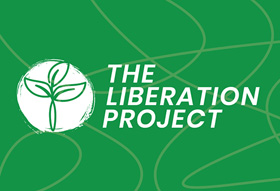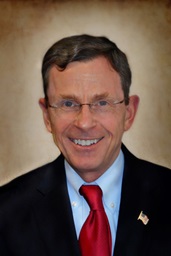For one progressive group, liberation doesn’t mean liberating themselves from their United Methodist ties.
The Liberation Project is a new group getting off the ground that aims to provide United Methodist congregations and church leaders with resources and a sense of community in furthering what it calls “the Gospel of Liberation.”
By liberation, the group means much more than working toward LGBTQ and interracial inclusion.
“The Liberation Project creates space for United Methodist leaders to get together and do the work of justice-oriented, healing ministry, rather than talk to one another about how we probably should be doing it,” said the Rev. Jonah Overton, lead pastor of Zao MKE Church, a new United Methodist congregation in Milwaukee.
Overton and other organizers make clear that the new Liberation Project is separate from the similarly named Liberation Methodist Connexion. The Connexion is starting a new denomination, while organizers of The Liberation Project are sticking with The United Methodist Church for their justice work.
Liberation Project events

“The Liberation Project is an opportunity for us to create a community and offer resources to fellow Methodists who are also believe in a more liberated future of the church,” said Victoria Sun Esparza, one of the organizers and a church consultant in Dallas.
The Liberation Project plans to have a roundtable at 7:30 p.m. U.S. Eastern time Dec. 10 on Facebook Live. The conversation will focus on Advent and the ways Christ’s birth can teach Christians about liberation.
The group had a previous Facebook Live roundtable on Nov. 19.
Learn more about the Liberation Project.
The Liberation Project plans to have a roundtable at 7:30 p.m. U.S. Eastern time Dec. 10 on Facebook Live. The conversation will focus on Advent and the ways Christ’s birth can teach Christians about liberation.
The group had a previous Facebook Live roundtable on Nov. 19.
Learn more about the Liberation Project.
The organizers of the Liberation Project announced in October this year that they would advance the work of liberation apart from UM Forward.
“We saw more hope in putting our energies toward building on-the-ground ministries and we didn’t have any interest in leaving the UMC or starting a new denomination,” Overton told United Methodist News.
Organizers include veterans of denominational leadership as well as church revitalizers and planters, like Overton. The organizers include people of color as well as trans and queer members from across the United States.
The Rev. Jay Williams, one of the early leaders of UM Forward, said he is staying because he believes The United Methodist Church “can still become its best self and be a denomination that is grounded in the Gospel-call of liberation.”
Williams, lead pastor of the multicultural Union United Methodist Church in Boston, defines liberation as freedom from oppression, an end to injustices that keep people from flourishing and an answer to the biblical invitation to abundant life and unconditional love.
The basic idea is that no one is free until everyone is free.
“For some, liberation invokes images and memories of secularized socialism, overturning governments and anarchy,” Williams acknowledged.
“In reality, though, liberation is a deeply Christian posture of possibility that preaches flourishing and fulfillment for all. Jesus preached liberation — Jesus was a liberationist, so in being disciples we are all called to be liberationists.”
The term is familiar in Christian theological circles. Latin American Catholic theologians first developed liberation theology in the 1960s to emphasize God’s call to free the poor and oppressed. Other theologians, such as the African Methodist Episcopal Church’s the Rev. James Cone, expanded it to help other identity groups claim their place at God’s table.
“As I describe liberation theology, I am again struck by how much the values of collective liberation are in alignment with the Wesleyan rules to do no harm, do good, and stay in love with God,” said the Rev. Austin L. Adkinson, pastor of Haller Lake United Methodist Church in Seattle. “Methodist spaces should be fertile ground for liberation theology.”
Both Williams and Adkinson are longtime veterans of General Conference, but at this point, the group is not proposing a legislative agenda.
Instead, the focus is on providing liberation-minded resources for local churches including sermon starters, music and art. The group already has Scripture, liturgies and art resources up for Advent.
In January, Overton plans to start a podcast titled “Jonah & the Peacock,” that will explore familiar Bible stories from different perspectives.
Cameron Overton, lay worship pastor at Zao MKE and the Rev. Overton’s spouse, plans to develop a creative collective of singers, musicians, and artists all asking the question: “What would our art, music and worship services look like if we first had liberation in mind?”
The Overtons’ church, Zao MKE, identifies as Jesus-rooted, justice-centered and radically inclusive. The church, which began worshipping weekly in 2019, takes its name from the New Testament Greek word meaning to live or breathe and a common name for Milwaukee.
Subscribe to our
e-newsletter
Like what you're reading and want to see more? Sign up for our free daily and weekly digests of important news and events in the life of The United Methodist Church.
“We are very proud of the work we've been able to do on the ground at Zao MKE Church, establishing the area's largest supply drop and distribution center for resourcing ongoing protests with food, water, and basic medical and safety supplies,” the Rev. Overton said.
However, Liberation Project organizers said they also want to work with churches that may be starting from a different place when it comes to anti-racism work.
One of the organizers is the Rev. Jason Butler, lead pastor of Open Table United Methodist Church, a church relaunch in Raleigh, North Carolina, that is striving to better connect with its community.
“There must always be an urgency about the work of justice, but part of our job as church leaders is to make sure there are on ramps to this work at different places depending upon how someone is ready to engage,” he said.
He expects the Liberation Project to be a “tremendous resource to the church” by centering perspectives that many white church folks have never heard while also empowering all church members to take action.
Some of the group’s work could potentially complement the United Methodist bishops’ initiative to stand against racism. Nevertheless, organizers expect their anti-racism work may end up being more community-based and more radical than the bishops’ efforts.
The Rev. Tyler Sit already has seen the congregation of New City Church, the church he started in Minneapolis, put liberation principles to work.
The church stands in the same neighborhood where George Floyd died under a police officer’s knee. The congregation has been committed to anti-racism work since it started nearly three years ago and immediately responded with a prayer vigil that drew more than 36,000 views online.
Since then, the congregation has raised more than $51,000 for a Solidarity Fund. The fund supports groups doing justice work in the neighborhood, finances microloans for individuals facing economic hardship, and sustains the church’s anti-racism training.
“People are desperately looking for ways that God is moving when it seems like the empire has won,” Sit said. “And if the church can provide a witness in the face of the literal heat of our city burning down, people show up.”
Hahn is a multimedia news reporter for UM News. Contact her at (615) 742-5470 or [email protected]. To read more United Methodist news, subscribe to the free Daily or Weekly Digests.
Like what you're reading? Support the ministry of UM News! Your support ensures the latest denominational news, dynamic stories and informative articles will continue to connect our global community. Make a tax-deductible donation at ResourceUMC.org/GiveUMCom.




